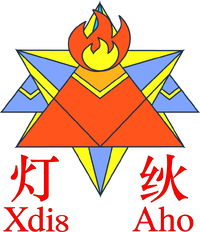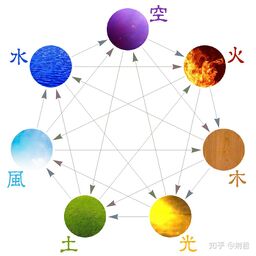Seven elements
- Update English version. i dont speak Chinese so cant translate
In Shidinn occultism, Seven elements is a classical element theory as an extension to, and moving beyond, Hellenistic concept of four elements and Chinese wǔxíng. The elements are Fire, Wood, Light, Earth, Air, Water and Void.
It is not related to another sevenfold conceptual system of Genshin Impact.
The elements
Unlike in wǔxíng, overcoming (相克 xiāngkè) is the dominant interaction between elements. Each element overcome three elements and is overcome by another three.
| Element | State of matter | Characteristics | Colour | Day of week | The seven deadly sin |
The seven holy virtues |
Bāguà | Direction (Prior) |
Direction (Postnatal) |
|---|---|---|---|---|---|---|---|---|---|
| Fire | Plasma | Enthusiasm, strength | Red #F4592D | Monday | Wrath | Charity | ☴ | Right | Right front |
| Wood | Organic | Ordinary, the mass | Orange #EDA667 | Tuesday | Lust | Patience | ☲ | Left back | Left front |
| Light | Wave | Wisdom, rationality | Yellow #FAF03E | Wednesday | Pride | Chastity | ☳ | Right back | Right back |
| Earth | Non-living solid | Stability, stubbornness | Green #5FB319 | Thursday | Gluttony | Diligence | ☱ | Left front | Right |
| Air | Gas | Variability, indeterminacy | Cyan #8EEDE2 | Friday | Greed | Temperence | ☶ | Right front | Left back |
| Water | Liquid | Affection, moderation | Blue #0568E3 | Saturday | Envy | Humility | ☵ | Left | Left |
| Void | Vacuum | Nature, inaction | Violet #49207C | Sunday | Sloth | Kindness | ☰ | Origin | Origin |
Ternary relations
Three elements overcome by one another element are confronting (同仇). Three elements overcoming one another element are accusing (同食, literally ‘same food’). For example: Wood, Light and Air are confronting since each of them is overcomed by Fire (the relation may be called Fire-confronting). Fire, Light and Earth are accusing since each of them overcomes Air (the relation may be called Air-accusing). Note that the ternary relations cannot be used as binary relation, for example, Fire, Wood and Earth are confronting, but we cannot say that Fire and Wood are confronting.
For any two elements there is a unique element to be confronting, and a unique element to be accusing along with them (the two chosen elements are different). For example, for Wood and Air only Light is joint to be (Fire-)confronting and only Earth to be (Water-)accusing.
If seven elements are seen as points and seven confrontation or accusation triads are seen as ‘lines’, the whole system will form a Fano plane (finite projective plane of order two). The projective plane is the smallest non-trivial projective plane.
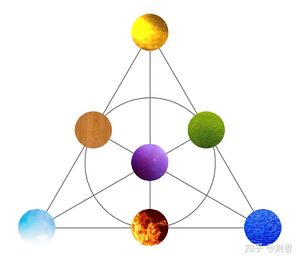
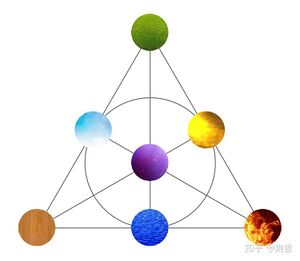
Tàiyángyì
A Tàiyángyì figure is consisted of two stacked elements.
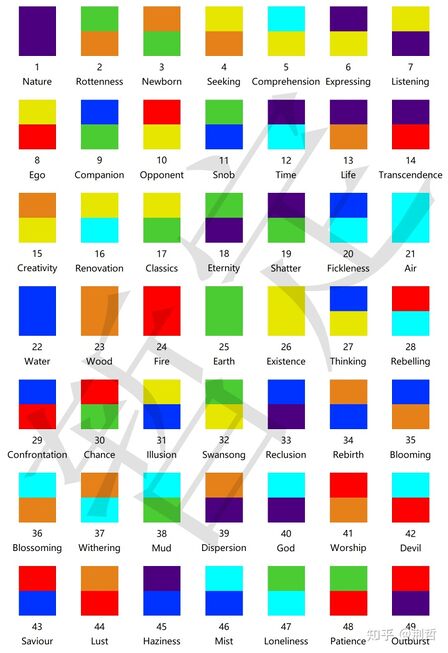
See also
In other languages
- 本页中文版见七元素。
